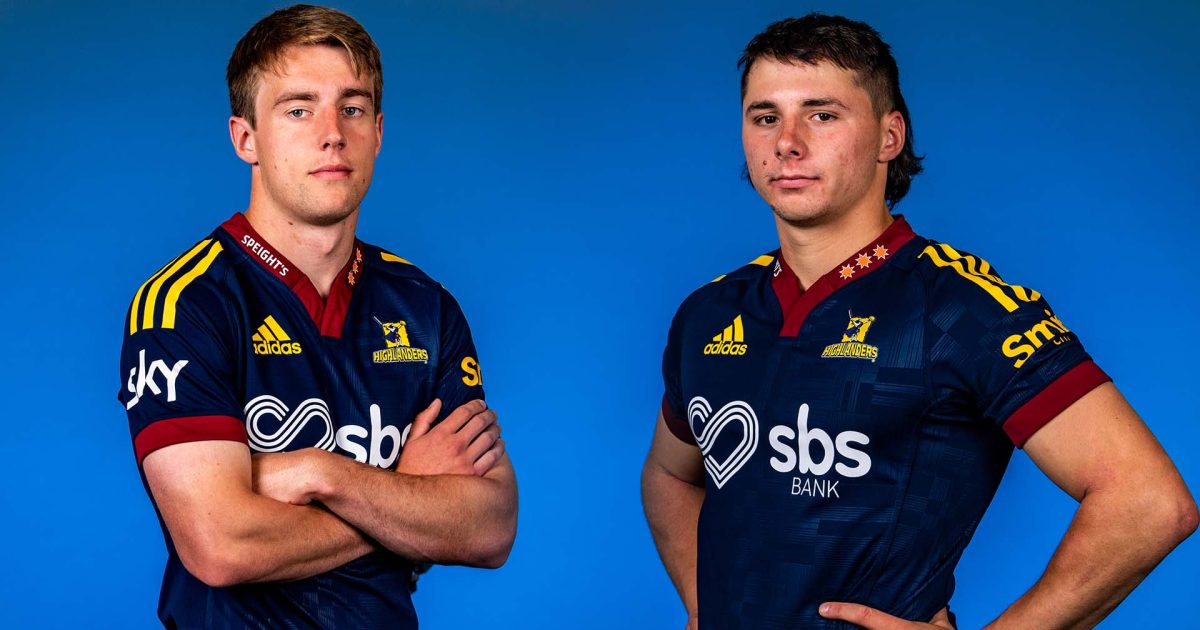Highlanders invest in future by signing five New Zealand U20 players from 2024

The Highlanders have invested heavily in their future, signing five New Zealand U20 representatives on three-year deals from 2024.
Southland loose forward Hayden Michaels joins Otago quartet Nathan Hastie, Cam Millar, Jake Te Hiwi and Oliver Haig in signing with the Dunedin-based franchise.
Michaels, Millar, Te Hiwi and Haig were all part of the New Zealand U20 team that recently won the Oceania U20 Championships, while Hastie featured for last year’s New Zealand U20 side.
Of the five players, only Michaels and Millar have first-class playing experience.
Michaels made two bench appearances as a reserve loose forward for Southland at the backend of last year’s NPC, while Millar featured in four matches at first-five for Otago.
A long-time prospect after coming through the ranks as a local schoolboy, Millar impressed in his Otago debut, a non-competition match against Wellington, scoring 18 points from the boot in his side’s 33-28 win.
Millar will join his former Otago Boys’ High School teammates Haig, a flanker, and Te Hiwi, a midfielder, in this year’s Otago squad.
Hastie, meanwhile, was also included in last year’s Otago squad and partook in pre-season training with the Highlanders earlier this year, but is yet to make his NPC debut, despite being named on the bench to face Taranaki in round six.
With incumbent halfback Kayne Hammington now gone after taking up a contract overseas, Hastie was in line to jostle with fellow youngster James Arscott for more game time this season.
However, the 21-year-old will miss most – if not all – of this year’s NPC after undergoing shoulder surgery about a month ago.
All five players hail from within the Highlanders’ catchment region, and are all either current members or graduates of the Highlanders High Performance Programme and Highlanders U20 side.
Highlanders chief executive Roger Clark said that reflects the work done by the franchise to prepare local talent to make the step up to Super Rugby Pacific.
“Our High Performance group have done a good job identifying and helping nurture the young talent from within our own regions,” Clark said in a statement.
“They’ve been working closely with Otago, Southland, and North Otago to provide a development pathway for players and it’s great that this group will realise their dream of becoming Super Rugby players. I am sure there will be more to follow.”
Rugby Southland chief executive Steve Mitchell echoed Clark’s sentiments, saying the Highlanders have provided young, local talent a “a realistic pathway to higher honours”, which Otago Rugby chief executive Richard Kinley agreed with.
“These young players have put in the hard work and as a result, the local high performance pathway has rewarded them,” Kinley said.
“It is especially pleasing to see the aligned approach and early commitment from the Highlanders to these players. It’s a real win for everyone to be able to keep them in the region where they can continue to grow and develop.”
Following the upcoming NPC campaign, all five players will continue their development with their respective unions and the Highlanders’ High Performance unit next year.





































































